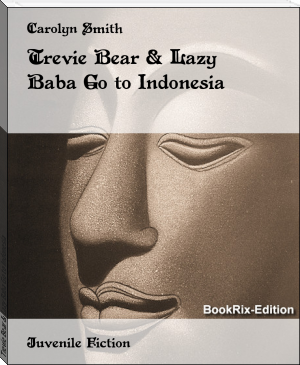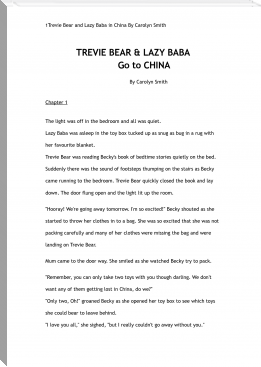Chasing the Sun by Robert Michael Ballantyne (room on the broom read aloud .txt) 📖

- Author: Robert Michael Ballantyne
Book online «Chasing the Sun by Robert Michael Ballantyne (room on the broom read aloud .txt) 📖». Author Robert Michael Ballantyne
On making this discovery honest Bob's body became exceedingly warm and his face uncommonly red. He glanced round uneasily, blew his nose, rose suddenly, and, putting on his hat with the back to the front, went out of the church on tip-toe as quietly as possible, and was not again seen, until, an hour afterwards, he was discovered seated on the sunny side of a rock near the boat calmly smoking his pipe!
Bob was somewhat ashamed of this little adventure, and did not like to have it spoken of. As a matter of course his comrades did not spare him; but, being the steward of the ship, and having supreme command over the food, he so contrived to punish his messmates that they very soon gave up joking him about his going to church with the Norse girls!
It cannot be said that any of the three friends made much of the sermon that day. Fred understood only a sentence here and there, Grant understood only a word now and then, and Sam Sorrel understood nothing at all; but from the earnestness of the preacher, especially when the name of our Saviour was mentioned, they were inclined to believe that a good work was going on there.
In this opinion they were further strengthened when, on afterwards visiting the pastor, they found him to be a man of singularly kind and earnest disposition, with agreeable and unaffected manners. He wore a long loose robe of black material, and a thick white frill round his neck similar to that usually seen in the portraits of the great Reformer Martin Luther.
His family consisted of a wife and four children--a sturdy boy, and three flaxen-haired girls, all of whom vied with each other in paying attention to their visitors. Coffee was instantly produced, and cakes made by the fair fingers of the goodwife. The pastor could speak a little French, so that his visitors were able to converse with him, but the other members of the family could speak nothing but their native tongue. However, this did not prove a great stumbling-block, for, while Grant talked French with the pastor, Fred entertained his hostess in his best Norse, and Sam Sorrel, not to be behindhand, got the children round him, and made such wonderful use of _ver so goot_ and his other pet phrases, that he succeeded in getting the boy on his knee, and in setting the girls off into giggles of laughter.
They spent that Sunday and the following Monday at this pleasant place, and were taken by the pastor all over his house and grounds and village, after which he conducted them to the summit of a mountain, whence they obtained one of the finest views they had yet seen in Norway.
Here, for the first time since leaving England, they regarded a fair wind with disfavour; they bade adieu to the pastor and his family with a little of that sad feeling which one experiences when parting, perhaps for ever, from dear friends.
But time and the sun would not wait. The anchor was tripped; the sails were spread; in half an hour the place had dwindled away to a bright green spot in the far distance; then they rounded the beetling crags of an island--and it vanished from their view.
CHAPTER EIGHT.
VISIT TO A STRANGE PEOPLE--THE MIDNIGHT SUN.
One day the _Snowflake_ lay becalmed in one of those long narrow fiords by which the whole of the west coast of Norway is cut up, and some of which extend from seventy to a hundred miles inland.
There was no prospect of a breeze, so another boat excursion was talked of. Hearing this, Hans Ericsson informed his master that there was a small settlement of Laplanders about thirty miles or so inland, and that he would be very glad to guide him and his friends to it if they chose.
They jumped at the proposal at once, and in less than half an hour they were on their way to it. Bob Bowie also went on this expedition.
No carioles could be procured in that wild region, but at a poor fishing-village on the coast they got two of the country carts. These are small rough machines, with a seat on wooden springs. They can hold only two persons, and are light and serviceable, well suited to the rough roads. Fred and Sam led the way; Grant and the steward followed. Hans acted the part of shooscarle to the former, and the owner of the carts drove the latter.
The first start was up the side of a hill at least two thousand feet, and the road was so steep that it was all that the ponies could do to drag up the empty carts. Having gained the top of the first hill, they came upon a level plateau, resembling the bleak Scottish moorlands, which terminated in a range of wild snow-capped mountains. After resting the ponies a few minutes, they set off at a brisk trot, and were soon across the level ground. Ascending to another plateau, they crossed it, and finally reached the higher mountain-range of the interior. Here they crossed several patches of snow which the summer heat had not yet been able to melt away.
As soon as they were fairly amongst the mountains, the roads became horrible, and it was a matter of wonder that the springs of the carts were not broken. Toiling up hills, and dashing down on the other side,--crashing over fallen rocks, and shaving the edge of yawning gulfs and precipices,--thus they advanced till evening, through a country which was the picture of barrenness and desolation.
Rocks were the chief feature of the scenery. They had got to such a height above the level of the sea that there were no pines, only a few stunted birch-trees. There was little soil, but that little was well clothed with vegetation. Rocky mountains, rocky masses, and rocky glens everywhere; but as they went farther inland the scenery improved a little.
Soon they found that instead of travelling inland they had been only crossing one of these broad necks of high land which separate the fords of Norway from each other, and ere long they came in sight of the sea, with precipitous mountains dipping into it.
Here, on a green slope facing the fiord, were seen the conical tents of the strange people whom they had travelled so far to visit.
The inhabitants of Lapland are a distinct race from their southern neighbours the Norwegians, in size, intelligence, civilisation, and manner of life. They are as near as may be _savages_ in appearance, and in some of their habits, insomuch that on first visiting them a stranger might be apt to set them down as _real_ savages. Yet they are many degrees higher than the savage, such as the Red Indian of North America. The Lapp is as dirty as the Indian, and dwells in as poor a hut, and lives in as simple a style; but he is rich in _property_--his property being herds of reindeer, while the Indian depends entirely on the chase for wealth and subsistence. Then again, although the Lapp has nothing worthy of the name of a house, he is an educated man, to a small extent. He can read, and, above all, he possesses the Word of God in a language which he understands.
In bodily size, however, the Red Indian beats him; for as a race the Lapps are particularly small, though they are well proportioned and active.
They are seldom visited by strangers; and it is not improbable that when the two carts dashed into their village our friends were the first Englishmen they had ever seen.
It happened to rain heavily during the last part of the journey to the Lapp village. To the surprise and amusement of the travellers, Bob Bowie drew forth from his cart a huge red cotton umbrella which he had purchased at Bergen, and which, seeing the sky cloudy, he had brought with him in the hope that he might have occasion to use (that is, to display) it.
The rain, however, did not depress the spirits of the party a whit. Nothing in the shape of water could damp their enthusiasm.
If any one wants to see a poor, ragged, diminutive, wizened, yet jolly race of human beings,--a race of beings who wear hairy garments, sup reindeer's milk with wooden spoons, and dwell in big bee-hives,--he has only got to go to Lapland and see the Lapps.
Quitting the carts at the outskirts of the village, the travellers advanced into the centre of it just as the natives were driving a herd of reindeer into an enclosure to be milked.
There could not have been fewer than three hundred reindeer-stags, does, and numerous fawns; and these, they afterwards learned, constituted the entire wealth of three families of Lapps.
As Fred and his friends strode into the enclosure, and came upon these good people rather suddenly, their amazement was unspeakable at finding they had bagged a party of giants along with their deer. Even scraggy Sam Sorrel looked quite big compared with them.
After the first gaze and shout of surprise, they crowded round the strangers, and they all--men, women, and children--began to eye and paw them over, and to examine their costumes with deep interest. The diminutive size of the Lapps became very apparent as they were thus engaged. None of the men were much, if at all, above five feet, several were considerably under that height, and the women were short in proportion.
If the bosoms of these Lapps were small, their hearts must certainly have been very large, for they received their visitors with great warmth and delight. Altogether they were a jovial and hearty, though uncommonly ill-dressed race of mortals.
The men were clothed partly in deer-skin, partly in coarse cloth, and these garments were reduced by long service to a uniform dirty-brown colour. They showed signs of being slept in by night as well as worn by day.
There was a schoolmaster amongst them. Only fancy, a Lapp schoolmaster, four feet nine or ten inches high! Sam Sorrel took a sketch of this gentleman on the spot, with his wife and child. What the schoolmaster taught, or whom he taught, or when or where he taught, are questions to which Fred could obtain no answer. To look at him, one would have imagined that eating, sleeping, and herding reindeer were the only lessons that he was able to teach. Yet it was found on inquiry that some of them could read Norse; and Sam actually discovered an old man in one of the huts poring over a New Testament in that language. There seemed something strangely incongruous in all this. They were dirty and uncouth; they had no houses, no tables or chairs, no civilised habits of any kind; yet they could read, and they had a schoolmaster! A very dirty one, to be sure, and





Comments (0)